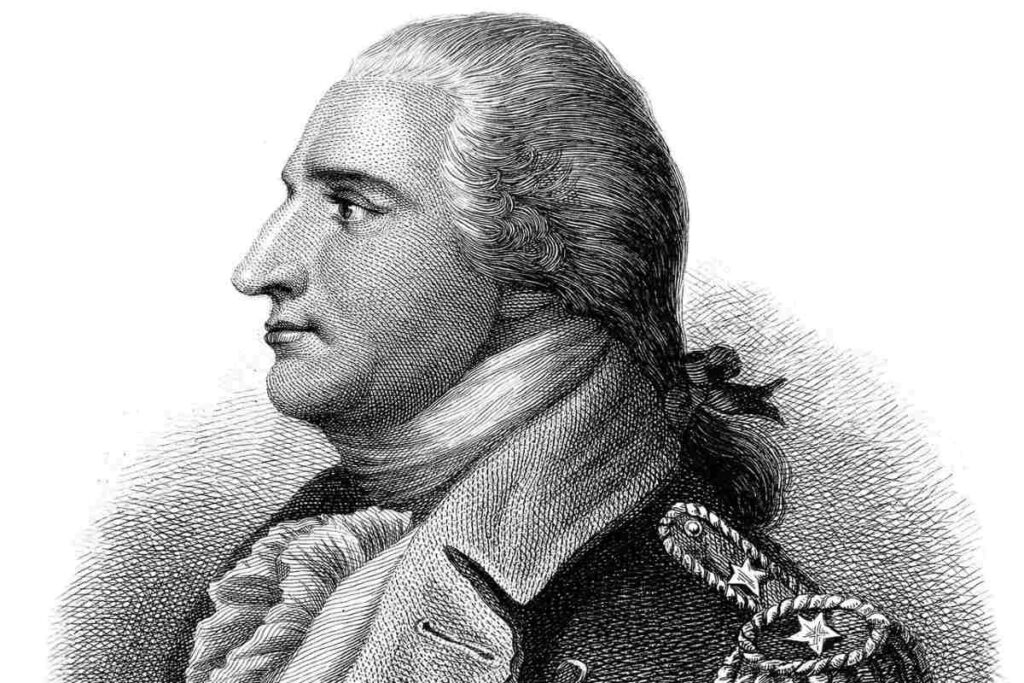In 1780, America suffered one of its biggest betrayals. Benedict Arnold, one of its leading commanders in the Revolutionary War, conspired to sell his people to the enemy, Great Britain.
Arnold was given command over the Hudson River, one of the most strategic battle points. But he planned to surrender the location to the enemy in exchange for wealth and protection.
It was a shocking move. Benedict Arnold had won some of the most crucial battles for the Americans. He had risked his life, health, and business for the cause of freedom.
For him to turn his back when the revolution was so close to achieving freedom was quite unexpected. This move automatically sealed his spot as America’s greatest traitor.
Benedict Arnold was courageous. He was hungry for adventure. This trait soon launched him into prominence in the Continental Army.
To date, his name is boldly etched in the history books as the man who traded gold for loyalty. However, the story is more complex than that.
Here, we’d examine Benedict Arnold’s rise from obscurity to one of America’s most significant revolutionary assets. We will also look at his motivations for his military betrayal.
Arnold’s switch to the British side wasn’t just because of money. There was something bigger he wanted. Let’s find out.
A Patriot at the Start
Born in Norwich, Connecticut, in January 1941, Benedict Arnold was raised in a wealthy home. However, the family fortunes soon disappeared as his father squandered their wealth through poor financial decisions and excessive drinking.
Arnold took to the apothecary, the ancient version of pharmacy, to make ends meet. After making some money from mixing drugs and herbs, he ventured into full-time trading.

As a merchant, he sold goods between New England and the Caribbean. This experience not only gave him a deep understanding of human psychology and relations, but it also began to develop an independent spirit within him.
It was this financial independence that later grew into his desire for national freedom. So when American colonies began defying British authority, he immediately joined the front lines of the struggle.
His heroics reached the ears of George Washington. Arnold and Washington met, during which the revolutionary leader praised him for his exploits.
In addition to his hatred for bondage and oppression, Benedict Arnold was courageous. He was hungry for adventure. This trait soon launched him into prominence in the Continental Army.
On July 4, 1776, after Congress voted to promote the Declaration of Independence, the quest for freedom was sealed. The 13 American colonies officially declared their independence from Great Britain. War had begun.
But even before that, Arnold had joined the militiamen in their fights against the British. Thanks to his intellectual brilliance and bravery, he immediately stood out.
In 1775, he devised a plan to capture Fort Ticonderoga, New York, from the British. The location was a British treasure and storage site for some of their choicest cannons.
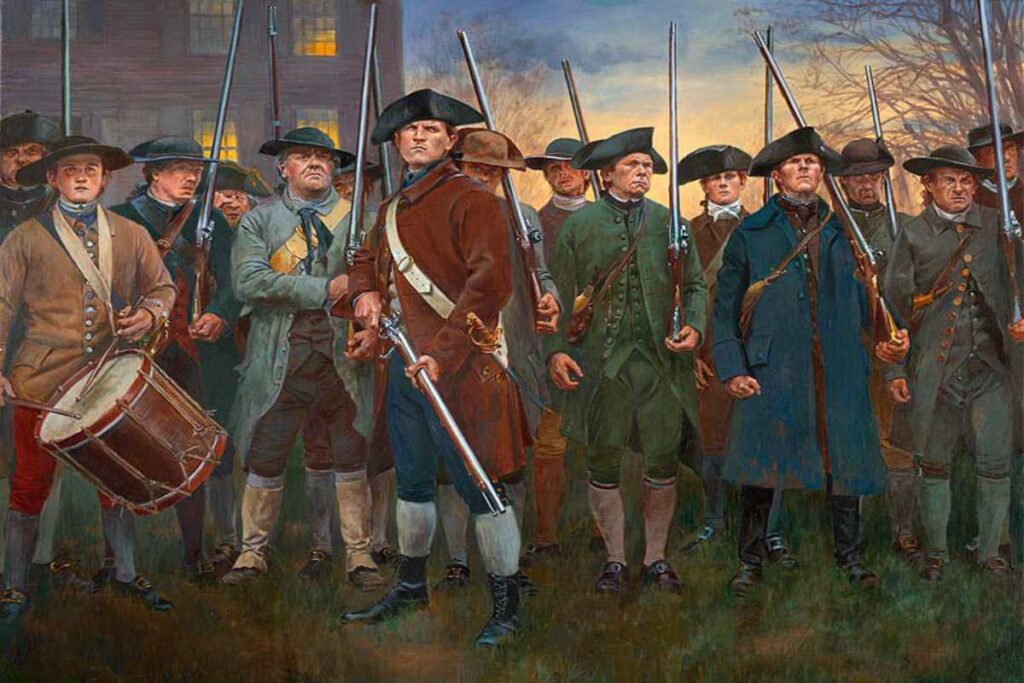
In collaboration with the militia group known as the “Green Mountain Boys,” Arnold’s plan was successful. He and the militia leader Ethan Allen guided their men across Lake Champlain to stage the surprise attack.
It was the first offensive victory for American forces in the war. American forces also took custody of their first real high-grade weapons. The triumph earned Benedict Arnold the status of a hero. He became a symbol and model of courage.
The March Through Hell
The Fort Ticonderoga victory wasn’t going to be the last for Arnold. He won an even more crucial battle in the fall of 1775. In a daredevil mission, he led troops to capture Quebec, one of the most valuable Colonial territories at the time.
It was far from easy. He and his 1100 men had to walk many hours through the wilderness of Maine. After which they merged with another American army led by General Richard Montgomery.
Their mission was simple. They were tasked with bringing the Canadian city under American control. Even though the mission would be costly, it was worth it.
The men had to surmount freezing rivers and deadly swamps. They also had to face starvation and exhaustion. Their boats sank on the way. They ran out of food, and a lot of their supplies went bad.
The army gave other soldiers credit for his accomplishments. They erased his name from many of the victory stories and gave rewards meant for him to his colleagues.
Yet, Arnold wasn’t going to give up. Through it all, he motivated his comrades to push on. But by the time they finally arrived in Quebec on December 31, 1775, only about 600 men were left.
Arnold and Montgomery attacked the city with all desperation. They hadn’t come all the way to lose. They gave the battle all they got.
Unfortunately, Montgomery didn’t come out alive. Arnold got his leg injured. The attack was unsuccessful, and the surviving men came back with heads bowed.
But when he returned, the Americans had gotten wind of his uncommon bravery. He became even more popular among his people.
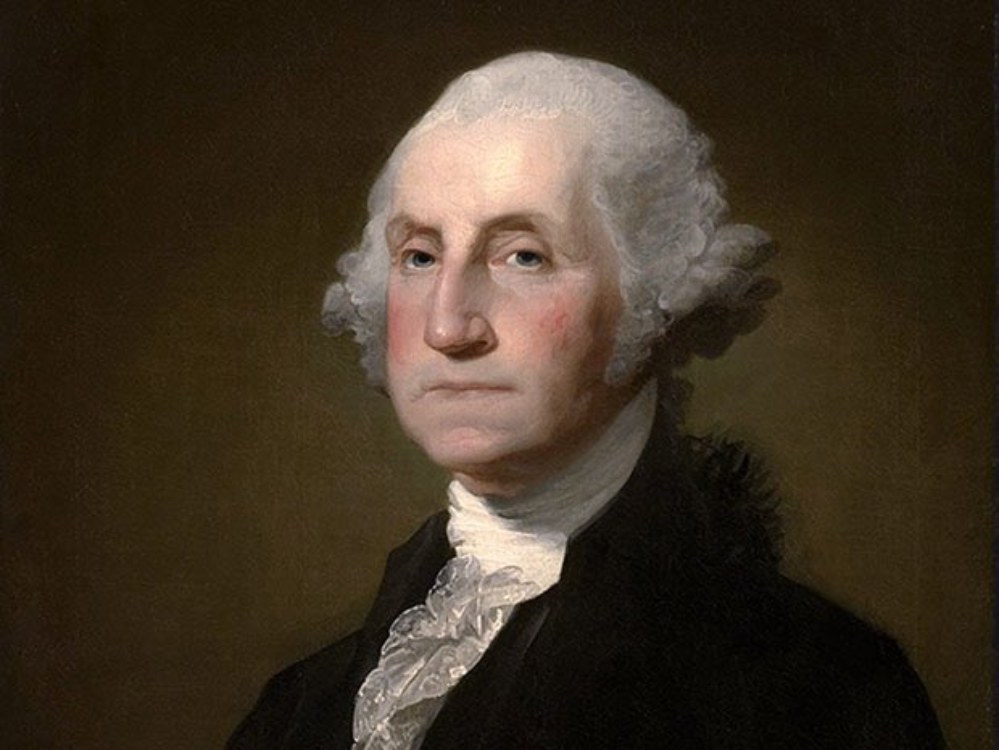
His heroics reached the ears of George Washington. Arnold and Washington met, during which the revolutionary leader praised him for his exploits. Even his fellow soldiers joined him and nicknamed him “the American Hannibal.”
But beyond the admiration and celebration, Arnold was faced with a deformity. His leg never healed completely. It caused him to limp till he died.
But that wasn’t all. Arnold was getting cheated, too.
A Hero Without Recognition
The Continental Army wasn’t giving Arnold the promotion he deserved. Despite the fame and applause his bravery won for him, they were mostly unofficial.
The army gave other soldiers credit for his accomplishments. They erased his name from many of the victory stories and gave rewards meant for him to his colleagues.
In another instance, Arnold showed his value to the rebel army. At the Battle of Valcour Island in 1776, he led a small and ill-equipped group of soldiers against the far superior British Navy.
Despite their inferiority, they were able to give the enemy a run for their money. Arnold’s men were able to keep the Navy at bay for a long time.
This bought the Revolution more time. Yet, Arnold wasn’t officially recognized or rewarded. Again, under the command of General Horatio Gates, Arnold turned imminent defeat into victory in the 1777 battle in Saratoga.
He went against Gates’ more defensive tactics and launched a bold attack that seriously damaged the British camp, securing another victory for the Revolution. Yet, once again, all credit was given to Gates. General Gates, to counter Arnold’s growing popularity, downplayed his role while presenting the reports.
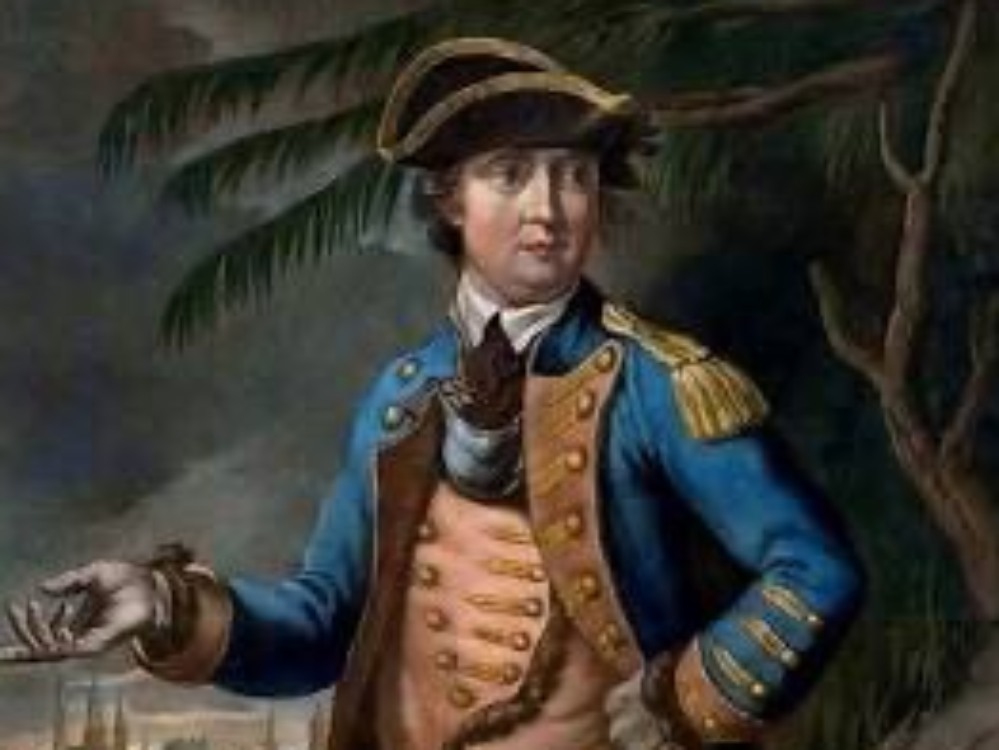
This time, his already bad leg suffered another serious injury. This time, he was confined to a hospital bed for a long time. Sadly, while he was recovering, Congress granted promotion to five junior officers over him. This was the last straw.
The humiliation and rejection were too much for him to bear. He gave the revolutionary cause his all, but the Americans turned their backs on him. At the time, his business was grounded. He had abandoned it for military service.
This was the point at which Arnold began to look for a way out. The widest door he could find was the door of betrayal.
The Benedict Arnold Betrayal
In 1778, Benedict Arnold tied the knot again. His new wife, Peggy Shippen, was from a family with strong Loyalist links.
The Loyalists were Americans who favored continued colonial rule. She introduced her husband to many people who were supportive of the British. One of them was an officer called Major John André.
Slowly, his new company began to make the idea of betrayal more appealing. His financial and health losses, coupled with his humiliation at the hands of the Revolution, made the option irresistible.
Arnold had a crucial decision to make. By 1780, he had made up his mind.
That same year, he was given command of West Point. This was a fortress located on the Hudson River and a key strategic location during the war. Whoever controls West Point controls Hudson.
However hard he tried, his new British brothers never trusted him. They saw him as he was—an American Revolution traitor who could also turn on them at any time.
This river was the only thing that separated the rest of the colonies from New England. It was a prized asset. But Arnold had been negotiating with the British behind the curtains. Through Major André, he had given them a list of his demands.
Betraying his people wouldn’t come cheap. He must receive a handsome financial reward and a high rank in the British military. They agreed.
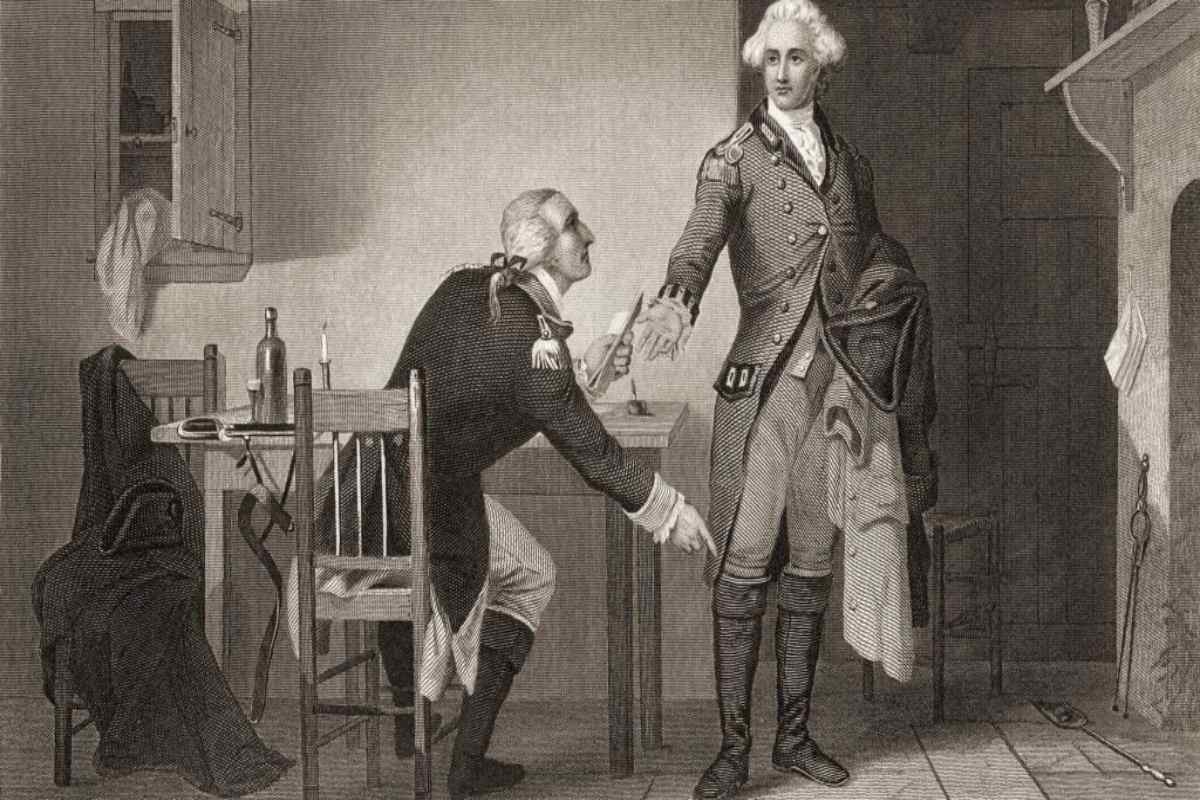
However, just before he was to hand over the location to the enemy, he was caught red-handed by American forces. He managed to escape arrest, but André wasn’t that lucky.
André was hanged. The news of the Benedict Arnold betrayal shocked the Revolutionary Army. No one saw it coming.
Life as a Traitor
Arnold ran into a British ship for safety. His legacy had been altered. His world had changed.
Upon arrival on British soil, he was admitted into the British army as a brigadier general. He began to lead military missions against American territory.
However hard he tried, his new British brothers never trusted him. They saw him as he was—an American Revolution traitor who could also turn on them at any time.
After the war ended in 1783, he found himself isolated. Before he died in 1801, he ventured back into the world of business. Unfortunately, he failed in all his attempts.
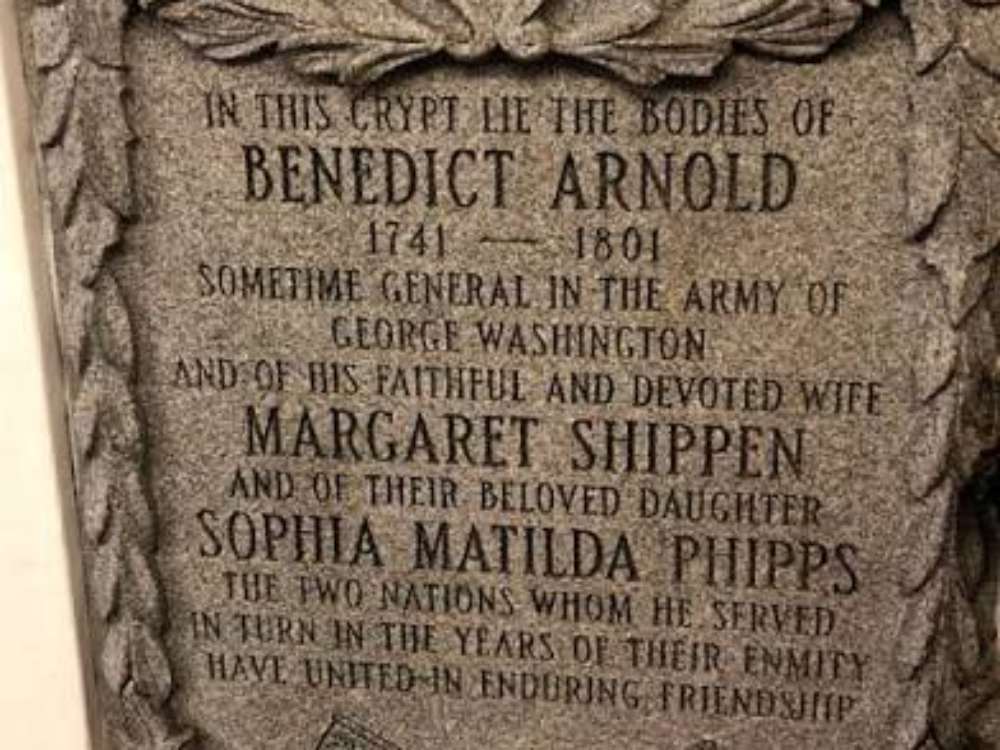
His health also began to suffer. He died a rejected man, only known for military betrayal and selling Revolutionary War secrets to the enemy.
The Legacy of Benedict Arnold
The West Point plot was the decision that changed Benedict Arnold’s life forever. It transformed his legacy from a resistance hero to an American Revolution traitor.
If he had seen the future, he would have endured the poor treatment at the hands of the Americans. Centuries later, his betrayal of his people remains the most prominent aspect of his story.
His heroics and victories for the Revolutionary Army usually take the back seat. Also less discussed is the rejection and lack of recognition he suffered.
Benedict Arnold’s story serves as a poignant reminder that loyalty shouldn’t be taken for granted. It is also a lesson on how pride and ambition can drive the sweetest of souls into the wrong path.
Heroes can easily turn to villains. All it takes is one crucial choice. Benedict Arnold wasn’t born a villain; he was made into one.
Arnold’s name once meant courage. After West Point, it meant betrayal. Which do you think history should remember more?


